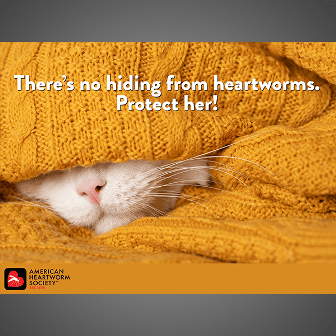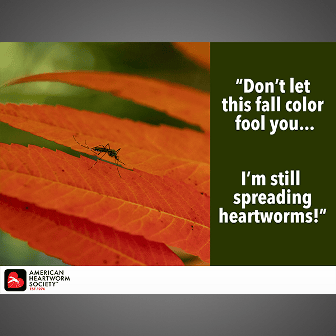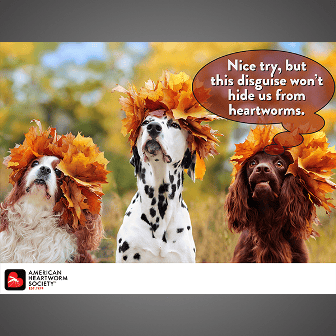More than a million pets in the United States have heartworms. Let that sink in, because it is one of the most horrible statistics regarding our furry friends. Heartworm affects an animal’s health and quality of life long after the heartworms are gone. These creatures are heartless in what they do. The American Heartworm Society (https://www.heartwormsociety.org) reports that, typically, most pet owners would not knowingly put their pet at risk to become infected with the deadly disease, but millions of these same owners fail to protect their pet from the infestation. For a disease that is easily prevented, there are no excuses.
When warm weather hits, you will want to ramp up your heartworm education efforts. To help make this goal easy--and fun--the AHS has created a new set of posters to print or post on your social pages.
- To save or print a poster, just click on the image below, then click on the “download” button and save the PDF file.
- To save a poster for use on your social pages, simply open the downloaded poster, then right click on the file and follow the menu instructions to save the file as a JPEG image.
For more client tools, be sure to visit the Resource Center. And if you don’t already, make sure you’re sharing our Facebook and Instagram posts!

















